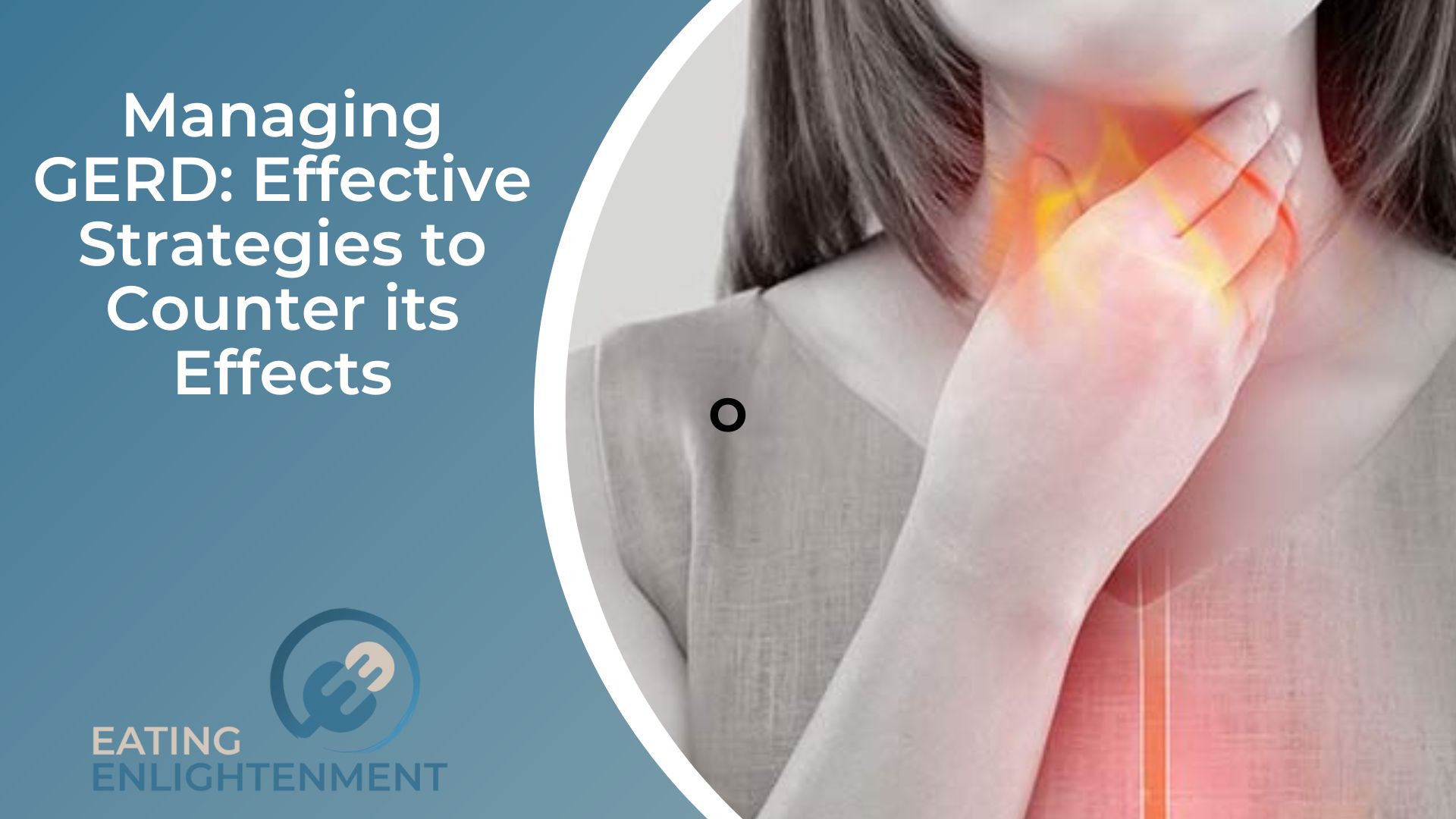Gastroesophageal reflux disease (GERD) is a chronic condition that affects millions of people worldwide. Marked by the reverse flow of stomach acid into the esophagus, GERD can result in bothersome indications like heartburn, regurgitation, and chest pain.
While medication plays a crucial role in managing GERD, adopting effective lifestyle changes is equally essential to alleviate its effects. This article explores strategies to manage GERD and improve overall quality of life.
Mindful Eating Habits

One of the first steps to manage GERD is to adopt mindful eating habits. Consuming smaller, more frequent meals can reduce the pressure on the stomach and minimize the risk of acid reflux. This approach prevents the stomach from becoming overly full, which in turn reduces the likelihood of stomach acid pushing its way into the esophagus. Additionally, opting for nutrient-dense foods in these smaller meals can help maintain a steady release of energy and reduce the chances of triggering GERD symptoms.
Eating slowly and chewing thoroughly plays a vital role in the digestive process. By dedicating time to thoroughly masticate your food, you effectively break it down into tinier fragments, thereby facilitating its digestion within your stomach. This not only aids digestion but also prevents the stomach from working in overdrive to break down larger chunks of food, which can contribute to excessive acid production and subsequent reflux. By making a conscious effort to savor each bite and fully masticate your food, you can minimize the strain on your digestive system and reduce the likelihood of GERD flare-ups.
Avoiding large meals close to bedtime is a well-acknowledged practice for GERD management. The reasoning behind this advice is twofold. Firstly, consuming a heavy meal shortly before lying down can lead to increased pressure on the stomach, which may prompt stomach acid to flow into the esophagus. Secondly, lying down soon after eating hampers the body’s natural gravity-assisted digestion process. When you are upright, gravity helps keep stomach contents where they belong, but this advantage diminishes when you’re horizontal. By allowing a gap of at least two to three hours between dinner and bedtime, individuals can significantly decrease the chances of experiencing nighttime reflux.
Optimal Hydration
Maintaining proper hydration is crucial for general well-being, yet the selection of drinks can notably influence GERD. Opt for water, herbal teas, or diluted fruit juices, as these options are less likely to trigger acid reflux. Conversely, beverages containing caffeine and carbonation can induce relaxation of the lower esophageal sphincter, which might create a pathway for stomach acid to reflux into the esophagus. By selecting hydrating beverages that are gentler on the digestive system, individuals can proactively manage GERD and reduce discomfort.
Interestingly, the connection between GERD and certain conditions like dysphagia, which causes difficulty in swallowing, highlights the complexities of digestive health. Individuals with dysphagia often struggle with thin liquids, making adequate hydration a challenge.
However, the introduction of innovative solutions like Simply Thick can bridge this gap by offering a safe and enjoyable way for those with dysphagia to consume liquids. But what’s even more fascinating is that this solution indirectly aligns with GERD management. Info about other solutions includes Dexilant (Dexlansoprazole) Medication Information.
Simply Thick, a specialized food and beverage thickener, modifies the consistency of liquids, making them safer and easier to swallow for individuals with dysphagia.
Elevating the Head of the Bed
Nighttime acid reflux can be particularly bothersome for GERD sufferers. The darkness and quiet of night seem to amplify even the slightest discomfort, making it crucial to adopt strategies that ease nighttime symptoms. Raising the head of the bed by 6-8 inches presents a straightforward yet impactful method that can greatly ease nighttime acid reflux. By adjusting the angle of the upper body, this strategy takes advantage of gravity’s assistance in keeping stomach acid where it belongs—within the stomach.
The concept behind elevating the head of the bed is grounded in physics and human anatomy. In a horizontal position, the angle between the esophagus and the stomach reduces, potentially creating a smoother pathway for stomach acid to travel into the esophagus. This can lead to the classic symptoms of GERD, such as heartburn and regurgitation. However, when the head of the bed is elevated, the angle between the two organs increases, creating a more challenging path for stomach acid to travel. As a result, the likelihood of acid reflux during sleep is significantly reduced.
Weight Management
Sustaining a healthy weight plays a vital role in GERD management. Extra weight, particularly concentrated around the abdominal area, can exert pressure on the stomach, heightening the likelihood of acid reflux. Embracing a well-rounded diet and participating in consistent physical activity not only assists in weight control but also enhances general digestive well-being. Shedding those extra pounds can significantly alleviate GERD symptoms.
Stress Reduction Techniques
Stress and anxiety have been linked to exacerbating GERD symptoms. Participating in stress reduction practices like deep breathing, meditation, and yoga can contribute positively to the management of the condition. Stress-reduction activities help regulate digestive processes and prevent the overproduction of stomach acid, contributing to a reduction in GERD symptoms.
While GERD may pose challenges, managing its effects is entirely feasible with a holistic approach. By adopting mindful eating habits, choosing beverages wisely, adjusting sleeping positions, maintaining a healthy weight, and incorporating stress-reduction techniques, individuals can significantly improve their quality of life.
It’s important to remember that every individual’s journey with GERD is unique, so consulting a healthcare professional is essential to creating a tailored plan for effectively countering its effects.



